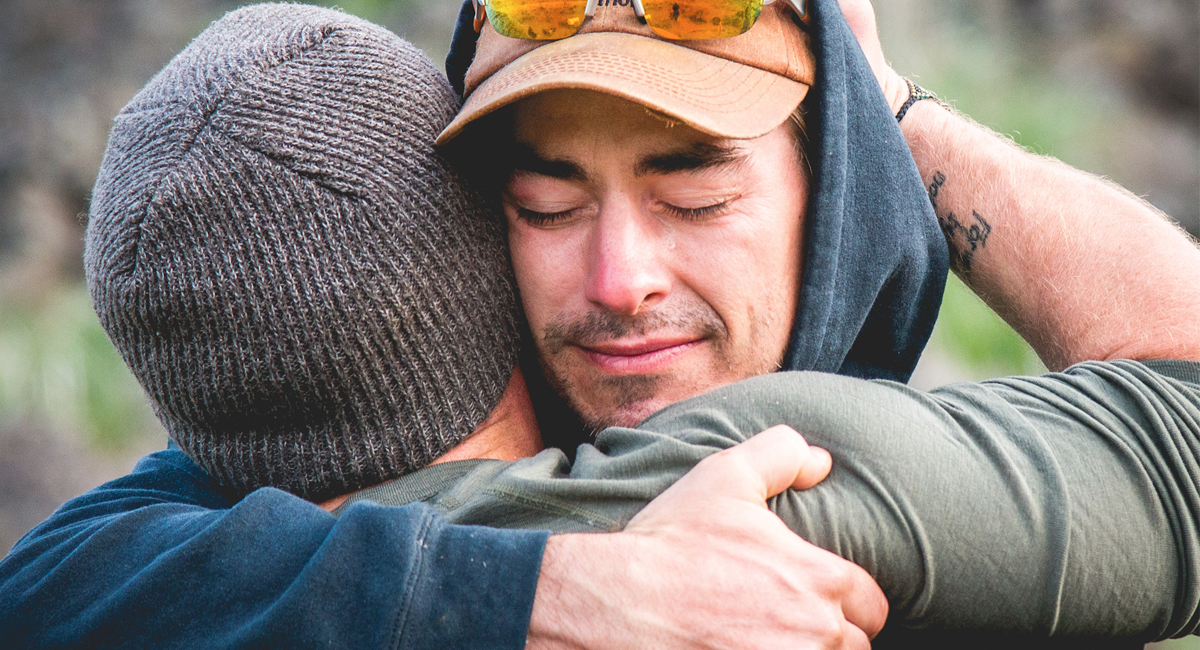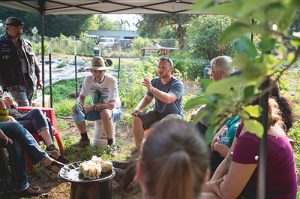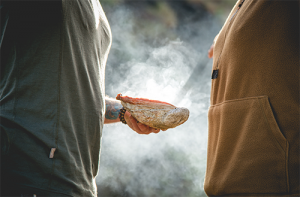

Forefront partners with UW Student Veteran Life to raise awareness about veteran suicide this Memorial Day
Memorial Day is a sacred day in the military community. It is a day in which we celebrate and honor our fallen service members and mourn the loss together with our surrounding community.
“In the military, we are taught to destroy things,” Dr. Sam Powers, Director of Student Veteran Life said. “It’s the purpose of our existence while carrying out various missions. When we are no longer required to do so and are separated from the military, we can feel a bit lost. With the advent of quests, ecotherapy and other approaches that honor the relationship between humans and nature, the message is that helping things grow and creating things can help a wounded warrior used to destroying things heal.”
Memorial Day is… is a week of events aimed at raising awareness of the true meaning of Memorial Day. The 2018 Memorial Day is… program will focus on the epidemic of veteran suicide.
The events include the 7,388 Flag Laying Recognizing Veterans Suicide at the HUB Lawn on May 21, the Student Veteran Life’s event called “Let’s Talk: Mental Health for Veterans” on May 22, the Veterans Only Ruck March on May 22, “Coming Back from the Ledge” on May 23, the Memorial Day Ceremony on May 24, and the Memorial Day 5K Run, Walk, and Roll, on May 28.
Everyday, the U.S. loses an average of 20 of veterans to suicide, both older veterans from the Vietnam era and first Gulf War as well as our post 9/11 wars. But, there is hope.
“Veterans are asked to do for this country what no one else is,” Powers said. “Killing fellow humans does not come naturally. To do so requires a split in the psyche. This split, left unaddressed, can result in the development of barriers that hinder a successful transition to the civilian sector.”
Many programs and institutions are working on suicide prevention and while there are many traditional resources provided for veterans (funding for education, individual and family therapy, job readiness and training, medication) for many veterans those traditional pathways to a successful transition to civilian life do not address their specific needs or aren’t accessible for a variety of reasons.
“For many veterans coping with Post Traumatic Stress, moral injury, pre-trauma, alternative modalities of healing are needed,” veteran spouse and community organizer for Forefront, Jo Arlow said. “Veterans, their families and communities are coming together in creative and meaningful ways to prevent these tragedies.”
Agriculture work, peer-support organizations, veteran-led service organizations, and non-traditional ceremonial and nature-based programs are among those addressing the urgent need for veterans’ successful transition, reintegration and healing.
“It is critically important that those serving this group of veterans at risk of suicide are aware of these alternative programs that prevent suicide and increase wellness,” Arlow said.
 Forefront Suicide Prevention will also partner with Student Veteran Life for a special Memorial Day is… event entitled Healing Veterans: A Photography Exhibit. This installation of photographs depicts veterans programs that provide alternative modalities of healing, including agriculture work, peer-support organizations, veteran-led service organizations and non-traditional ceremonial and nature-based programs.
Forefront Suicide Prevention will also partner with Student Veteran Life for a special Memorial Day is… event entitled Healing Veterans: A Photography Exhibit. This installation of photographs depicts veterans programs that provide alternative modalities of healing, including agriculture work, peer-support organizations, veteran-led service organizations and non-traditional ceremonial and nature-based programs.
The opening night of this exhibit will be Wednesday, May 23rd from 5:30 – 7 pm in the UW School of Social Work Gallery. A short program featuring photographer Jo Arlow and veteran speakers will kick off this exhibit.
“I hope it will educate veterans, their families and the larger community about alternative programs for those at risk of suicide,” Arlow said. “[I hope it] provides information that will help a veteran in need find his or her way to a program that will help prevent their suicide and improve their life.”
In addition, there is a forum called “Coming Back From the Ledge” held by the Office of Student Veterans on suicide and resiliency amongst veterans with a reception prior to the exhibition.
“[I think the purpose of this event is] to engage veterans and community members in discussion regarding suicide prevention and resiliency amongst veterans,” Arlow said. “Veterans are a growing segment of our population with specific needs and skill sets to offer the community. In addition to honoring their service, it is important to understand what we all can do assist veterans in their new lives as civilians.”
Forefront is on the leading edge of research and communication regarding suicide prevention. Forefront also strives to examine the ways in which specific groups of people (by age, occupation, etc.) need targeted suicide prevention and intervention efforts.
“The barriers that can develop due to unaddressed issues can become toxic, even lethal over time,” Powers said. “The work that Forefront does to educate individuals about how to address these issues head-on is invaluable. It opens the doors for veterans (and everyone) to have a place to speak about these issues. It also normalizes them.”
“Veterans are a group of people at increased risk of suicide and targeted intervention efforts are needed,” Arlow said. “Community education is always a key component of their work, and this event is designed to educate both veterans, their families, and the public on issues surrounding veteran suicide.”
 For the past three years Arlow has been involved as a volunteer and advocate for various veterans programs including GRuB Victory Farm, Growing Veterans, Mission Continues, Save a Warrior and School of Lost Borders Veterans Vision Fast as well as being a Forefront community organizer.
For the past three years Arlow has been involved as a volunteer and advocate for various veterans programs including GRuB Victory Farm, Growing Veterans, Mission Continues, Save a Warrior and School of Lost Borders Veterans Vision Fast as well as being a Forefront community organizer.
“My husband Greg was a veteran of the US Navy Special Forces and served in the First Gulf War, Panama and elsewhere,” Arlow said. “He suffered from chronic pain, moral injury, and PTS and took his own life in 2011. Since his death I struggled with what interventions or assistant might have better addressed his suffering. In 2011 nontraditional programs did not exist, and now that they do, I am working to ensure they are widely known.”
The benefits are veterans getting to see alternative ways of healing, first and foremost. It’s also a way for allies to see veterans healing in relation to nature. A convenient by-product is for the public to see that not all veterans are the same and certainly not are all a they are portrayed in Hollywood and in the news.
“Almost all veterans experience the process of transitioning,” Powers said. “Many veterans do not experience the development of barriers during the transition process. However, when they do, barriers almost never look the same. Coping mechanisms almost never look the same either. Therefore, each veteran is unique in how he or she copes with the transition process and any barriers that may develop.”
_____________________________